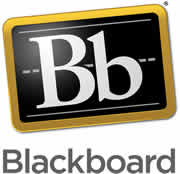
Most big colleges use it to give students homework, even conduct tests. My son has it at Georgia State and is prone to using the name as a verb — "the professor decided to blackboard that."
Since it's proprietary, and there's an itch among many colleges for open source alternatives to everything, there has been an assumption in the open source community that it's going to get hit, like Microsoft was hit, by an open source alternative (like Linux).
One way to forestall that is to do what Oracle did, essentially buy out the competition. Oracle's purchase of Sun brought it mySQL, Java, OpenOffice, and a ton of bad publicity, giving Larry Ellison the kind of tsuris Bill Gates had to get used to back in the day. (Of course, that means he's crying all the way to the bank about his fee-fees being hurt.)
So Blackboard has chosen another path. Rather than buy out an open source project like Moodle, they bought two of Moodle's big support organizations, MoodleRooms and NetSpot. It created an "Open Services Support Group" specifically to sell colleges support for these open source projects.
The reaction of the open source community was kind of — "uh-waah? Waah!"

The change in direction goes beyond Moodle, moreover. The company is supporting all the open source alternatives to its software, even hiring (part-time) Dr. Charles Severance of Sakai (and the University of Michigan) for his open source cred.
I've covered open source for seven years. First they ignored it, then they fought it, but then we didn't win. The absorbed it and adapted to it.
The reason this works is simple. Businesses know business. They know how to do business. Open source people are more like writers, like me. They live for the code, for improving it, for working closely with it. They're not (usually) that much into business, although they may (in time) accept the need for it and eventually make some money from being part of it.
And big businesses know business best. They know how to deal with, and over time profit from, all kinds of challenges. Open source to them is just another challenge. Consumers benefit, because they get code that works better, code they can see, code they can download and don't necessarily have to pay for. But businesses benefit, too. They get new markets in which to compete, new ways in which to offer their services, new routes to profit that customers find acceptable.
Open source. Business. They don't have to be contradictions. But bringing them together is a negotiation. And businesses which understand that, as Blackboard apparently does, profit from it.











For database i always use oracle. Its easy to use functionality make me mad. Nowadays there are many new databases are invented but still oracle is alive in one of the corner of technologies world.
For database i always use oracle. Its easy to use functionality make me mad. Nowadays there are many new databases are invented but still oracle is alive in one of the corner of technologies world.